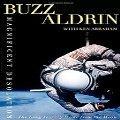'Magnificent Desolation' Recounts Astronaut Aldrin's Struggles
It was a dramatic moment, as Neil Armstrong took the first step on the moon at the successful climax of the Apollo 11 mission.
"That's one small step for man, one giant leap for mankind," Armstrong said. Aldrin followed his colleague onto the lunar surface, catapulting both men into history. Aldrin describes the magnificent, desolate landscape of the moon, and how that image paralleled his life.
"Because the challenge to me was returning back to earth as a person that now is going to go around to different places as sort of a hero, historical person on a pedestal and give a lot of speeches and lots of interviews, and that's not what I looked forward to," he explained. Life after moon landing The moon landing made Aldrin a hero, but it sidetracked his career as an Air Force officer. He says the military never knew quite what to do with returning astronauts.
He was put in charge of a test pilot school at Edwards Air Force Base, near Los Angeles. But Aldrin was a fighter pilot, not a test pilot. He had flown combat missions in the Korean War and he was never at home in the new position. He retired from the Air Force the following year.
He was academically gifted. He had completed a doctorate in astronautics at the Massachusetts Institute of Technology and helped develop some of the technology for the lunar mission. He was driven, and calls himself something of a perfectionist.
"So now I'm off on my own and I'm beginning to be a little dissatisfied with how things are going ," Aldrin said. "And I inherited a degree of perfection but also a degree of disappointment, disillusionment, depression, when things didn't quite go my way." History of depression Aldrin had a family history of depression. His mother committed suicide the year before he landed on the moon.
Aldrin says he also inherited a tendency to escape through alcohol and struggled with addiction. After two divorces, he got help through psychiatric counseling. He says his current wife, Lois, was also critical in helping him through the struggles. The two married in 1988.
The former astronaut now spends his time inspiring others with his vision of space, and promoting the space program.
"What I've been trying to do in an increasing way is to reach different segments of society - children's books - I've written two of them now," he noted. "I've written a science fiction story. I've shared activities with the Star Trek people and I expect to do more of that in the future. I've gone completely out of my realm of activities by doing a rap music with some rappers, Snoop Dogg and [Talib] Kweli." "I tell a story about my time on the moon, now, the sky was black even though the sun shined down, moon rocket such a trip. It's so fine, when you're walking in the lunar dust....." He wishes the United States would make better use of former astronauts, especially those from lunar missions. He says they could be unpaid, unofficial ambassadors, sharing their knowledge and expertise with other space agencies and inspiring people around the world with a vision of space.
After a triumphant trip to the moon and a difficult return, Aldrin, now 79, maintains an active schedule as he continues pursuing his passion, the exploration of space. He has founded a rocket design firm and a foundation that promotes future tourism in space.
Mike O'Sullivan, VOA News, Los Angeles

